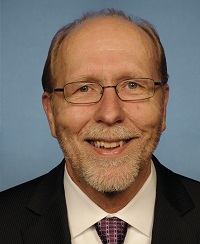 A congressman from Iowa makes the case that the Renewable Fuel Standard (RFS) is working and encourages his fellow lawmakers to support it. In an open letter titled “Dear Colleague: Why the last two months show the RFS is working,” Rep. Dave Loebsack points out that the recent flexibility in the RFS, the government looking into renewable fuel distribution barriers, and oil earnings not taking the bemoaned but not-to-fruition dips because of Renewable Identification Numbers (RINs) show a healthy RFS.
A congressman from Iowa makes the case that the Renewable Fuel Standard (RFS) is working and encourages his fellow lawmakers to support it. In an open letter titled “Dear Colleague: Why the last two months show the RFS is working,” Rep. Dave Loebsack points out that the recent flexibility in the RFS, the government looking into renewable fuel distribution barriers, and oil earnings not taking the bemoaned but not-to-fruition dips because of Renewable Identification Numbers (RINs) show a healthy RFS.
One of the important features of the RFS is that Congress provided significant flexibility to adjust targets based on anticipated production. On August 6, 2013, the EPA did just that, releasing the final 2013 RFS volumes at adjusted levels. The EPA decreased the required cellulosic biofuels amounts, as well as extended the deadline to comply with the 2013 standards by four months. This gives refiners additional time to blend renewable fuel or purchase RINs for 2013 compliance. Additionally, the EPA signaled it would remain flexible as it develops the 2014 RFS levels.
On August 22, 2013, the Federal Trade Commission (FTC) announced that it would look into anti-trust violations for limiting consumer choices at the pump. This comes as opponents of the RFS continue to talk about a hypothetical E10 blend wall that would allegedly create a barrier to using more biofuels in the domestic fuel supply. What’s clear is that these concerns are shortsighted. There are simple ways to eliminate any potential blend wall that include letting consumers dictate what fuel options they have at the pump. This market-based approach means consumers should have the option to put more biofuels into their gas tanks if they want.
And another strong quarter of earnings for the oil companies shows a pretty good Chicken Little impression when Big Oil tried to forecast “staggering” economic consequences of the RFS.
These recent events in regards to the RFS show that the law is working as intended. We must continue to support the RFS to spur continued development of homegrown fuels, lower gas prices, create good jobs, and promote economic development in our communities.

